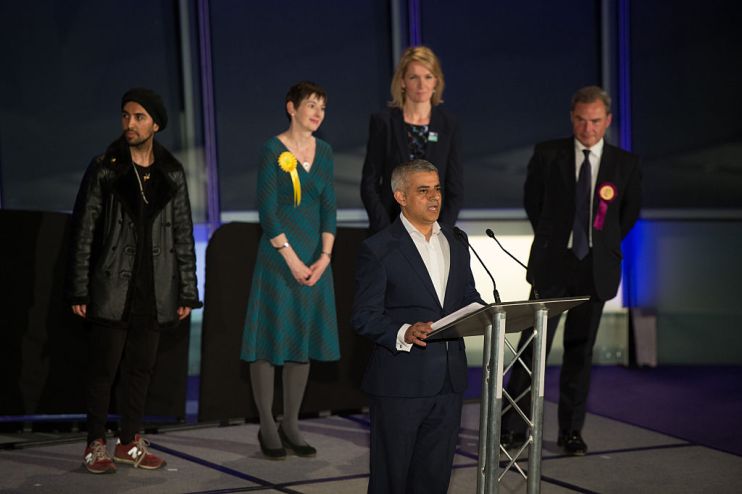Government plans to change mayor of London elections to First Past the Post

The government has today laid out plans to change voting in the mayor of London election and other local elections to First past the Post like in General Elections.
Priti Patel today said the Home Office, Cabinet Office and Ministry of Housing would “change the voting system for all Combined Authority mayors, the mayor of London and police and crime commissioners to First Past the Post”.
Patel said that First Past the Post – which awards seats in General Elections to whoever has the highest vote count and does not take into account preferences – “provides for strong and clear local accountability”.
The changes will need to happen through government legislation and will not be in place before the upcoming suite of local elections on 6 May.
It comes after Boris Johnson included in his 2019 election manifesto a pledge to further roll out First Past the Post at the local level.
The mayor of London election is currently decided through a preference vote, with two candidates going through to the second round if no one gets more than 50 per cent of the primary vote.
A winner is then chosen from the remaining two by taking preferences into account from the voters who chose eliminated candidates as their first preference.
However, Patel said in a ministerial written statement that “transferable voting systems were rejected by the British people in the 2011 nationwide referendum” and that therefore local elections should be changed to reflect this.
The Electoral Reform Society, a campaign group that aims to get rid of First Past the Post, hit out at the decision.
“The [2011] alternative vote referendum was a specific question with binding results, not a carte blanche to change any electoral system at any time,” they said.
Tony Travers, local government expert at the London School of Economics, said a change to First Past the Post at local elections would “wipe out” many smaller parties like the Liberal Democrats and The Green Party if it applied to the London Asssembly.
The London Assembly is a 25-member body that holds the London mayor to account and is made up of a mix of members that are directly elected through First Past the Post and others who are elected through proportional London-wide voting.
“It’s hard to imagine them having the mayor and not the whole assembly as First Past the Post and if that happens it would disadvantage the Greens, Ukip and the Lib Dems,” Travers said.
“The Conservative party more than any other party in Britain believes in First Past the Post as well they might as they are in power.
“It works very very well for the biggest and the second biggest party in the country.”
The mayor of London was created in 2000, after a 1998 referendum.
The referendum asked: “Are you in favour of the Government’s proposals for a Greater London Authority, made up of an elected mayor and a separately elected assembly?”
The type of voting system to elect the mayor was not on the referendum paper.
A London Labour spokesperson said: “”[The current voting system] is a fairer system that promotes a wide choice for voters and it has served Londoners well for over twenty years and there’s no groundswell for a change.
“For the Tory Government to impose a change to the electoral system without first asking the views of Londoners in a follow-up referendum demonstrates their breathtaking arrogance and their utter disdain for devolution”.
The Liberal Democrats, who have long campaigned for an end to First Past the Post, also hit out at the changes.
A party spokesperson said: “First Past The Post is a tired outdated system, that is barely used in other developed democracies.
“It forces voters to choose their least worst option and often produces unfair results where many votes don’t count and voices don’t get heard. It has damaged trust in politics and fuels complacency by incumbents.”